
1550s, yeaghe "a light, fast-sailing ship," from Norwegian jaght or early Dutch jaght , both from Middle Low German jacht , shortened form of jachtschip "fast pirate ship," literally "ship for chasing," from jacht "chase," from jagen "to chase, hunt," from Old High German jagon , from Proto-Germanic *yago- , from PIE root *yek- (2) "to hunt" (source also of Hittite ekt- "hunting net"). Related: Yachting ; yachtsman .

Entries linking to yacht
Old English huntian "chase game" (transitive and intransitive), perhaps developed from hunta "hunter," and related to hentan "to seize," from Proto-Germanic *huntojan (source also of Gothic hinþan "to seize, capture," Old High German hunda "booty"), which is of uncertain origin.
Not the usual Germanic word for this, which is represented by Dutch jagen , German jagen (see yacht (n.)). General sense of "search diligently" (for anything) is recorded from c. 1200. Related: Hunted ; hunting . To hunt (something) up "search for until found" is from 1791. Parlor game hunt the slipper is attested from 1766.
also jaeger , "German sharpshooter," 1776, from German Jäger , literally "huntsman," from jagen "to hunt," from Old High German jagon , related to Old Frisian jagia , Dutch jagen "to hunt," Old Norse jaga "to drive, to move to and fro" (see yacht (n.)). Applied to riflemen and sharpshooters in the German and Austrian armies. Englished as yager , yaeger from 1804.
- See all related words ( 5 ) >
Trends of yacht
More to explore, share yacht.
updated on September 28, 2017
Trending words
- 4 . vampire
- 6 . integrity
- 7 . spinster
- 10 . barbecue
Dictionary entries near yacht
yadda-yadda
- English (English)
- 简体中文 (Chinese)
- Deutsch (German)
- Español (Spanish)
- Français (French)
- Italiano (Italian)
- 日本語 (Japanese)
- 한국어 (Korean)
- Português (Portuguese)
- 繁體中文 (Chinese)

SailingEurope Blog - Sailing, Yacht Charter and Beyond

The Yacht – The Meaning and the Origin of the Word
In my language there are a few words for a floating object, or a vessel. According to the size and the purpose of the vessel, those words could be translated as “dinghy”, “yacht”, “boat” or “ship”. Some types of vessels have international names, for example “catamaran” or “hovercraft”.
What Does Yacht Mean?
However, when you say “ yacht” in my language, everyone know exactly what it is about. The word “yacht”, unlike other terms, has certain connotations. It always links with something classy, fancy, wealthy, elegant, and even glamorous.
For example, if you say that you have spent a week aboard a sailing boat , the recations of people will be more or less neutral. On the other hand, if you say that your week aboard a yacht was excellent, many people will become jealous. They will imagine you in a scene from a James Bond movie : aboard a massive white yacht in Monte Carlo , having a cold martini (shaken, not stirred)…
I wanted to share with you this language introduction because I found an interesting story about the word “yacht” and its origin. The word “yacht” became an English and an international term after an event that happened a long time ago.
How Do You Spell ‘Yacht’?

This word comes from the Dutch word “jacht”, which means “hunt”. Furthermore, “ j achtschepen” was the name for narrow, light and very fast sailing boats that the Dutchmen were using for intercepting larger and slower boats and ships.
One of the ‘hunters’ was given as a present to the British king Charles II . In His Majesty’s free time this vessel was not used for intercepting. Instead, was using it for fun. That is why the word “yacht” eventually became the term for vessels/boats made for pleasure.
I would highly appreciate comments from the native speakers of the English and Dutch languages. Especially since I am not one of them. No matter whether this story is true or not, it still sounds interesting to me.
Find out more about sailing quotes and phrases here .
I wish you a calm sea, a fine wind and a strong mast!
8 thoughts on “The Yacht – The Meaning and the Origin of the Word”
I looked up the origin of the word yacht, and it said it is a mid 16th century, Early Modern Dutch word from ‘jaght,’ from ‘jaghtschip’ meaning “fast pirate ship,” from ‘jaght’ which means “hunting” + ‘schip’ meaning “ship”.
I like the story of King Charles. It makes sense that that is why a yacht has the definite aura of wealth and pleasure!
Almost but not 100%. Actually the verb ‘jagen’ to hunt goes back to middle high German,i.e. Deutsch not Dutch, and before that it was ‘jagon’ in lower high German. But it seems that it all started with Greek and travelled North.
I guess that mid 16th century, the Dutch word jaght or jaghtschip was the word that got picked up. Not the earlier middle high German word where it came from.
Today it is jacht in Dutch, meaning hunting and it also the word for a luxury sailing boat.
In German Jagd is the word for hunt. Germans use the Dutch or English Jacht or Yacht for the boat.
Did the Germans design the original schooners? I think not! Since some Netherlanders speak a form of the Deutschland language, this word is shared (jacht/Dutch—jagd/German: meaning to hunt). It was the Dutch (Netherlanders) who designed the “flyut” or flute sailing ships, l-o-n-g before any British ever thought of such a ship—and—any German. The schooner grew out of the basic designs of the Dutch flute sailing ship (known for it’s speed). The Dutch economy relied heavily on trade and shipping, and were, thus, cutting edge innovators in ship building. Their engineering skills, was and is, plainly seen in their dike system, as well.
My father built a beautiful wooden replica of the”yacht” referred by the author (“Yacht Mary”) which was a present from the city of Amsterdam to King Charles II of England in 1660. They wrecked the ship a few years later (already too much partying on yachts, perhaps?)
I noticed the plaque that came with the model ship spelled the name as “Yatch” Mary. First, I thought, maybe, it was old English or Dutch spelling but it looks like it was just an error.
Nice, We have made an eplainermovie about this subject!
https://www.youtube.com/watch?v=l3HDZHF8w2E
In my head yogurt used to be spelled yoghurt and yacht used to be spelled yaught. Am I completely mis-remembering?
Dear Margaret, you are quite right for the spelling of the word yogurt that used to be, and sometimes still is, spelled with its old spelling yoghurt. However, there are no traces of the word yacht to have ever been spelled as yaught, but it would be best to take an etymology expert’s word for it.
Leave a Comment Cancel Reply
Your email address will not be published. Required fields are marked *
Save my name, email, and website in this browser for the next time I comment.
This site uses Akismet to reduce spam. Learn how your comment data is processed .
- 1.1 Etymology
- 1.2 Pronunciation
- 1.3.1 Derived terms
- 1.3.2 Translations
- 1.4.1 Translations
- 1.5 Anagrams
- 2.1 Etymology
- 2.2 Pronunciation
- 2.4 Further reading
- 3.1 Etymology
- 3.2 Pronunciation
- 3.4 References
- 3.5 Further reading
- 4.1 Etymology
- 5.1 Etymology
- 5.3 References
- 6.1 Etymology
- 6.3 References
- 7.1 Alternative forms
- 7.2 Etymology
- 7.3.1 Declension
- 7.3.2 Derived terms
- 7.4 Further reading
Circa 1557; variant of yaught , earlier yeaghe ( “ light, fast-sailing ship ” ) , from Dutch jacht ( “ yacht; hunt ” ) , in older spelling jaght(e) , short for jaghtschip ( “ light sailing vessel, fast pirate ship ” , literally “ pursuit ship ” ) , compound of jacht and schip ( “ ship ” ) .
In the 16th century the Dutch built light, fast ships to chase the ships of pirates and smugglers from the coast. The ship was introduced to England in 1660 when the Dutch East India Company presented one to King Charles II, who used it as a pleasure boat, after which it was copied by British shipbuilders as a pleasure craft for wealthy gentlemen.
Pronunciation
- ( UK ) enPR : yŏt , IPA ( key ) : /jɒt/
- ( US ) enPR : yät , IPA ( key ) : /jɑːt/ , /jɑt/
| Audio ( ): | ( ) |
- Rhymes: -ɒt
yacht ( plural yachts )
- 1897 December (indicated as 1898 ), Winston Churchill , chapter X, in The Celebrity: An Episode , New York, N.Y.: The Macmillan Company ; London: Macmillan & Co., Ltd. , →OCLC : The skipper Mr. Cooke had hired at Far Harbor was a God-fearing man with a luke warm interest in his new billet and employer, and had only been prevailed upon to take charge of the yacht after the offer of an emolument equal to half a year's sea pay of an ensign in the navy.
- 1907 August, Robert W[illiam] Chambers , chapter VI, in The Younger Set , New York, N.Y.: D. Appleton & Company , →OCLC : “I don’t mean all of your friends—only a small proportion—which, however, connects your circle with that deadly, idle, brainless bunch—the insolent chatterers at the opera, [ … ] , the chlorotic squatters on huge yachts , [ … ] , the neurotic victims of mental cirrhosis, the jewelled animals whose moral code is the code of the barnyard—!"
Derived terms
- motor yacht , motoryacht , MY
- sailing yacht , steam yacht , SY
- yacht person
Translations
| (yaḵt) (yaḵt) (zbosanav) (jáxta) (jáhta) (rwakhle) (tsiyu) (yóutǐng) , , , (iaxṭa) , (giot), (thalamigós) (yakhta) (yāxṭ) , (yotto) (äxta) (tuuk kɑmsaan) (yoteu) (yahta) (hư̄a bai) (jahta) (darvuult ongoc) (yât) (jáxta) , , (rʉʉa-bai), , (jáxta) , |
| (jahta) , (thalamigós) (yakhta) (fune), (bōto) , |
yacht ( third-person singular simple present yachts , present participle yachting , simple past and past participle yachted )
- ( intransitive ) To sail , voyage , or race in a yacht .
| (darvuult ongocoor javax) |
- Cathy , tachy , tachy- , yatch
Borrowed from English yacht , from Dutch jacht .
- IPA ( key ) : /jɔt/ , /jot/ , ( Canada ) /jat/
| Audio: | ( ) |
yacht m ( plural yachts )
Further reading
- “ yacht ”, in Trésor de la langue française informatisé [ Digitized Treasury of the French Language ] , 2012 .
Unadapted borrowing from English yacht .
- IPA ( key ) : /ˈjɔt/ [1]
- Rhymes: -ɔt
yacht m ( invariable )
- the letter Y in the Italian spelling alphabet
- ^ yacht in Luciano Canepari , Dizionario di Pronuncia Italiana (DiPI)
- yacht in Treccani.it – Vocabolario Treccani on line , Istituto dell'Enciclopedia Italiana
Borrowed from English yacht .
yacht ? ( plural yachts )
- ( Jersey ) yacht
Norwegian Bokmål
From Dutch jacht , via English yacht .
yacht m ( definite singular yachten , indefinite plural yachter , definite plural yachtene )
- “yacht” in The Bokmål Dictionary .
Norwegian Nynorsk
yacht m ( definite singular yachten , indefinite plural yachtar , definite plural yachtane )
- “yacht” in The Nynorsk Dictionary .
Alternative forms
yacht c
| Declension of | ||||
|---|---|---|---|---|
| Singular | Plural | |||
| Indefinite | Definite | Indefinite | Definite | |
| Nominative | ||||
| Genitive | ||||
- yacht in Svenska Akademiens ordlista ( SAOL )
- yacht in Svensk ordbok ( SO )
- yacht in Svenska Akademiens ordbok ( SAOB )
- English terms derived from Dutch
- English 1-syllable words
- English terms with IPA pronunciation
- English terms with audio links
- Rhymes:English/ɒt
- Rhymes:English/ɒt/1 syllable
- English lemmas
- English nouns
- English countable nouns
- English terms with usage examples
- English terms with quotations
- English verbs
- English intransitive verbs
- en:Watercraft
- French terms borrowed from English
- French terms derived from English
- French terms derived from Dutch
- French 1-syllable words
- French terms with IPA pronunciation
- French terms with audio links
- French lemmas
- French nouns
- French countable nouns
- French masculine nouns
- fr:Watercraft
- French loanwords with irregular pronunciations
- Italian terms borrowed from English
- Italian unadapted borrowings from English
- Italian terms derived from English
- Italian 1-syllable words
- Italian terms with IPA pronunciation
- Rhymes:Italian/ɔt
- Rhymes:Italian/ɔt/1 syllable
- Italian lemmas
- Italian nouns
- Italian indeclinable nouns
- Italian countable nouns
- Italian terms spelled with Y
- Italian masculine nouns
- Norman terms borrowed from English
- Norman terms derived from English
- Norman lemmas
- Norman nouns
- Jersey Norman
- nrf:Watercraft
- Norwegian Bokmål terms derived from Dutch
- Norwegian Bokmål terms derived from English
- Norwegian Bokmål lemmas
- Norwegian Bokmål nouns
- Norwegian Bokmål terms spelled with C
- Norwegian Bokmål masculine nouns
- nb:Watercraft
- Norwegian Nynorsk terms derived from Dutch
- Norwegian Nynorsk terms derived from English
- Norwegian Nynorsk lemmas
- Norwegian Nynorsk nouns
- Norwegian Nynorsk terms spelled with C
- Norwegian Nynorsk masculine nouns
- nn:Watercraft
- Swedish terms borrowed from English
- Swedish terms derived from English
- Swedish lemmas
- Swedish nouns
- Swedish common-gender nouns
- sv:Watercraft
- English entries with topic categories using raw markup
- Terms with Albanian translations
- Terms with Arabic translations
- Terms with Moroccan Arabic translations
- Terms with Armenian translations
- Terms with Azerbaijani translations
- Terms with Basque translations
- Terms with Belarusian translations
- Terms with Bulgarian translations
- Terms with Burmese translations
- Terms with Catalan translations
- Terms with Cherokee translations
- Mandarin terms with redundant transliterations
- Terms with Mandarin translations
- Terms with Czech translations
- Terms with Danish translations
- Terms with Dutch translations
- Terms with Esperanto translations
- Terms with Estonian translations
- Terms with Faroese translations
- Terms with Finnish translations
- Terms with French translations
- Terms with Galician translations
- Terms with Georgian translations
- Terms with German translations
- Terms with Greek translations
- Terms with Hebrew translations
- Terms with Hindi translations
- Terms with Hungarian translations
- Terms with Icelandic translations
- Terms with Irish translations
- Terms with Italian translations
- Terms with Japanese translations
- Terms with Kazakh translations
- Terms with Khmer translations
- Terms with Korean translations
- Terms with Kyrgyz translations
- Terms with Lao translations
- Terms with Latvian translations
- Terms with Lithuanian translations
- Terms with Macedonian translations
- Terms with Malay translations
- Terms with Manx translations
- Terms with Maori translations
- Terms with Marshallese translations
- Terms with Mongolian translations
- Terms with Norwegian Bokmål translations
- Terms with Norwegian Nynorsk translations
- Terms with Persian translations
- Terms with Polish translations
- Terms with Portuguese translations
- Terms with Romanian translations
- Terms with Russian translations
- Terms with Scottish Gaelic translations
- Terms with Serbo-Croatian translations
- Terms with Slovak translations
- Terms with Slovene translations
- Terms with Spanish translations
- Terms with Swedish translations
- Terms with Tagalog translations
- Terms with Thai translations
- Terms with Turkish translations
- Terms with Ukrainian translations
- Terms with Uzbek translations
- Terms with Vietnamese translations
- Terms with Volapük translations
- Mongolian terms with redundant script codes
- French entries with language name categories using raw markup
- Requests for gender in Norman entries
Navigation menu

- Most Popular , Objects
Yacht Word Origin
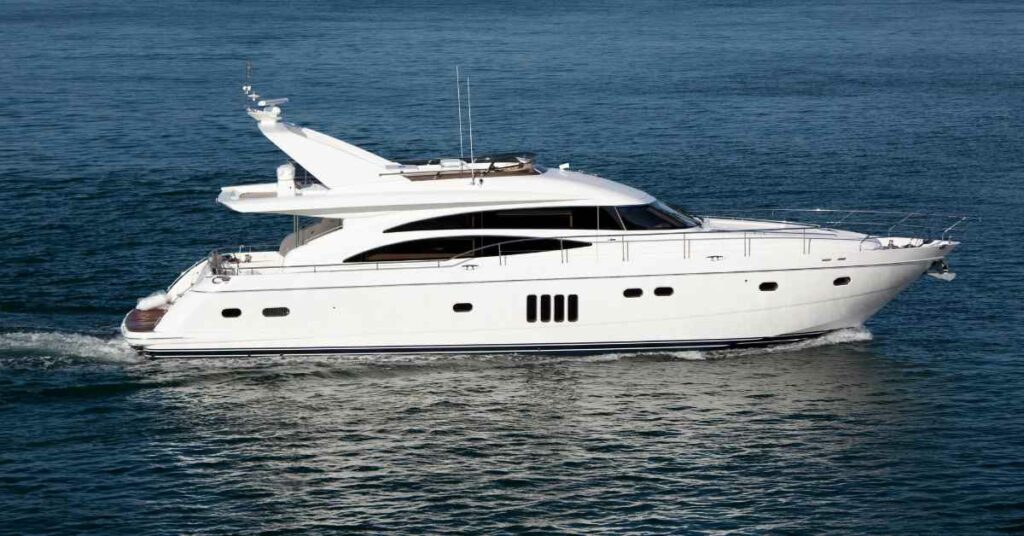
The word “yacht” conjures images of sleek, luxurious vessels gracefully sailing the open waters. But have you ever wondered about the origin of this nautical term? In this article, we delve into the intriguing history and etymology of the word “yacht,” tracing its roots from the Dutch language to its modern-day association with opulent recreational boating.
A Dutch Connection: The Early Origins
The word “yacht” finds its origin in the Dutch word “jacht” or “jaght,” meaning “hunt” or “chase.” In the 17th century, these vessels were primarily used by the Dutch navy for pursuing pirates and engaging in coastal defense. Originally, a yacht was a fast and nimble sailing ship with a focus on performance rather than luxury.
Evolution into Leisure Craft
Over time, yachts transitioned from their naval purpose to become vessels of leisure and pleasure. As the wealthy elite began to embrace sailing as a recreational activity, yachts became synonymous with luxurious and stylish cruising experiences. The word “yacht” gradually shifted to represent high-end vessels designed for private enjoyment rather than military pursuits.
The word “yacht” traces its origins to the Dutch language, where it originally referred to ships used for hunting and defense. With the evolution of leisure sailing, yachts transformed into symbols of luxury and indulgence, capturing the essence of elegant and extravagant sea travel. Today, these magnificent vessels continue to fascinate as they grace the world’s waters, combining a rich history with the epitome of maritime leisure.

Articles You Might Like

Origin of the Word Cocktail

Origin of the Word Picnic

Snozzberry Word Origin

Alcohol Word Origin

Avocado Word Origin

Origin of The Word Slave
Share this article, more stories.
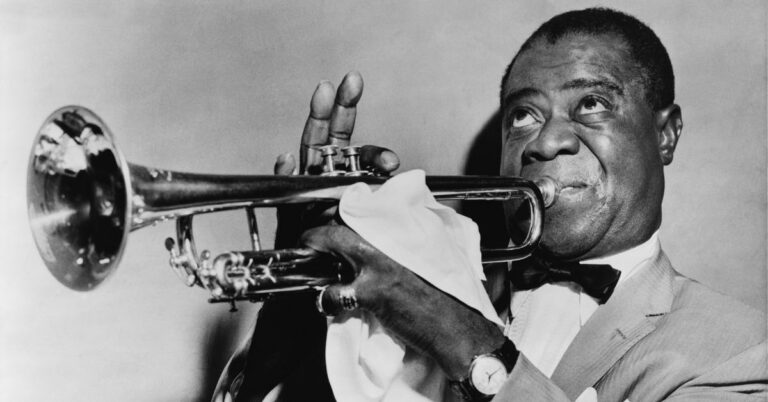
Jazz Word Origin

Coffee Word Origin

Chocolate Word Origin

Restaurant Word Origin

Ketchup Word Origin

Dude Word Origin

To the Bitter End: How Sailors Have Shaped the English Language

While writing an article recently, I noticed that I’d used at least three expressions that have a clear nautical origin.
This, sadly, was not a rare example of me being clever, but rather shows just how many English words and phrases derive from our maritime past.
Let’s begin, as any proper nautical education should, with our ports and our starboards.
Port and starboard
Before boats had rudders, they were steered by a board on the right side, which was known as a steerboard. Thus it became the ‘steerboard side’. The left side then became the side on which to tie up in port, so as to not damage the steerboard when docking.
King Henry V1 of England wanted bigger guns on his ships, and ordered cannons too big to be tied on deck in the traditional manner. He commissioned a Frenchman to solve the problem, who then built doors in the sides of the ship that the cannons could be fired through. French word for door: porte.
And there you have it, the portholes we look through each day were originally built to fire a cannon through. Now that would clear the summertime anchorage in Cala di Volpe pretty quick. You are too close to my boat. I can hear your music. Your stews are playing that song by Alicia Keys…again. Roll out the cannons! Ah, look at that. You are indeed on fire.
While we’re on the subject of cannons, ‘Loose Cannon’ came from the danger present when a cannon that was tied in place on deck came free of its lashings and careened around the deck, often crushing crew under its heavy wheels.
Keel-hauling
This expression comes from the barbaric punishment of pushing a sailor on a rope over the side and dragging him under the boat from side to side. Being put on watch for sleeping in doesn’t seem so bad now, does it.
Letting the cat out of the bag
Reminding us again how lucky we have it, this expression comes from the 9- tailed whip used to discipline sailors, which was apparently stored in a bag made of red material so as to hide the bloodstains. When the cat was let out of the bag, trouble was coming.
The origins above are not generally contested. But with the next ones, the waters get a bit murkier.
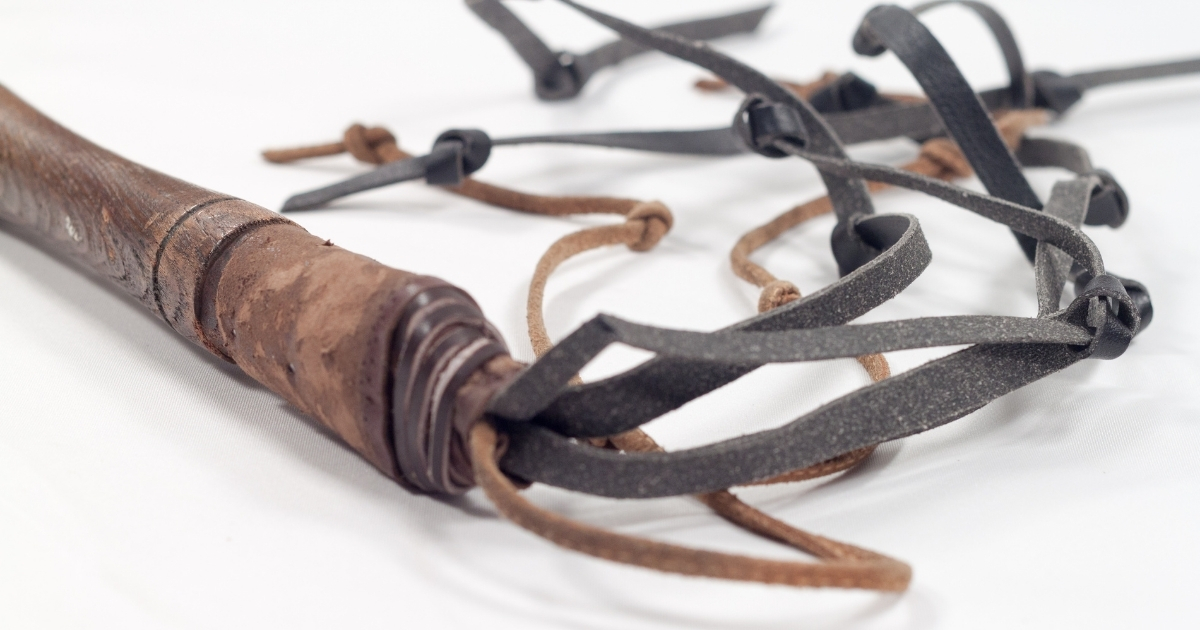
There is quite a fashion for attributing nautical origins to English phrases, a trend which many commentators put down to a mysterious organisation called CANOE: the Committee to Ascribe a Nautical Origin to Everything.
A word of warning: If you did look up CANOE, you’d be wasting your time as it is imaginary- unless of course you enjoy looking at pictures of people wearing fluorescent clothing and helmets sitting in hollowed out pieces of plastic and bashing into big rocks.
Many of the popular nautical origins of sayings have been, if not disproved, then at least discredited by etymologists (not entymologists, as insects have no place in this story). This is a shame (not the insect part, although if you were partial to insects I can see how that too would be disheartening), because some of the best stories have been found to be large parts fiction.
In case you aren’t familiar with it, the most common explanation for the word ‘posh’ is that on the ships that passed between England and India in colonial days, the wealthier passengers would be allocated the cabins that received the least sunlight, in order to make their long journey more comfortable. Therefore, port out, starboard home. POSH. Apparently this abbreviation was written either on the passenger tickets, or scrawled in chalk on the guest luggage, to help the crew deliver the trunks to the correct cabins.
However, this is where the story starts to take on water , for no ticket has ever been found with the abbreviation POSH on it, nor a photo uncovered where the trunks had those chalk markings. Considering that many photos have survived from this era, where people gathered on the quay upon departure posing for photos amidst piles of luggage trunks, the absence of photographic proof makes it highly unlikely that the expression POSH evolved from here. Furthermore, as Fiona MacPherson from the Oxford Dictionary blog rightly points out, this origin doesn’t account for the return journey from India, where the sunlight would have fallen on the other side of the ship, necessitating the abbreviation ‘soph’.
Oh, he’s so soph. It's a shame the Port Out Starboad Home theory doesn't bear scrutiny, because it’s a jolly good story, and in the absence of an interesting alternative, I am going to hold out hope for a ‘posh’ ticket to be discovered one day in an episode of Antiques Roadshow.

Son of a gun
Another highly contested entry into the CANOE hall of fame is ‘son of a gun’, which has several possible explanations and has been around since at least 1708.
One possible and popular option is that when women were allowed to travel on the ships during passages, that the resulting babies would be conceived or born (or both) on the gun deck.
Another, along the same lines, is that when a baby was born on board with unclear paternity, the child was apparently called ‘son of a gun’.
However, another explanation is a good deal stronger: that a child born to a sailor or soldier, was simply called ‘son of a gun’ as the child of a military man.
The difficulty in tracing these things and their meanings can be seen in the fact that son of a gun can either be complimentary: ‘You did it, you son of a gun!’, or derogatory: ‘He stole it, that son of a gun!’ (much like son of a bitch). As we can’t even manage to be definitive in what sayings like this mean now, it is very difficult to know what they meant hundreds of years ago. Ask an Australian, for instance, what a ‘bogan’ is. You’re likely to get a wide range of answers, which may or may not involve the word ‘Holden’. Language is a funny thing, as our crusty friends at CANOE will no doubt attest.
Another phrase of unclear origin is Hunky-Dory, the most interesting story offered is that it came from the name of a street in Japan where sailors could find all sorts of pleasures: Honki dori.
Back on more solid etymological ground now, there is little argument about the following:
Feeling blue
Comes from the tradition of arriving in port with blue flags up and a blue line painted on the hull when the boat has lost a captain or senior office on a voyage. Although it’s possible that below decks they were having a party, given the lashings and keel-haulings mentioned above.
This expression definitely came about when the excess fat from boiling meat for crew meals was scraped off and stored in barrels that were then sold ashore for extra money for the crew. The fat was referred to as slush, so there came about ‘slush fund’. Over the years it took on a political meaning for dodgy campaign funds, but also exists still as an expression for extra money made on the side.
Phrases.co.uk gives this quote from The Royal Navy Men’s Advocate , 1757:
Tars whose stomachs are not very squeamish, can bear to paddle their Fingers in stinking slush’, and in the Gentleman’s Magazine of 1756 there appears : ‘he used much slush (the rancid fat of pork) amongst his victuals.’ Victuals is an old fashioned word for food.
That last quote in itself should be enough to get us to stop whingeing to our chefs to have more/less/better variations of burger days.
This comes from a small, triangular sail that set above the other sails on a square rigger. It seemed, as it were, to scrape the sky.

Three sheets to the wind
Now this one has a certain sailing origin, and one which some of us can no doubt relate to. For those struggling to follow, it means drunk. Not just a little bit tipsy, but the type ricocheting from wall to wall and telling all and sundry that 'I love you, man.' This phrase comes from the sailing terminology that if three sheets were loose, the sail would flap about wildly and the boat would’ lurch about like a drunken sailor’. It used to be three sheets in the wind, for the sailing pedants out there. Tipsy was one sheet, and ‘well on the way’ was two sheets to the wind. (For those working on motoryachts who might make the mistake of thinking a ‘sheet’ is a sail, it’s not, it’s a line, so if the ‘sheet’ is loose, the sail flaps about. This is the kind of splendidly illogical terminology that sailors delight in tripping motoryacht crew up with, so be wary.)
As the crow flies
Prior to modern navigational techniques, British ships carried a cage of crows, which would be released to show which direction the closest land was.
Taken aback
is also a definite entry for the gnarly CANOE lads, as the words ‘taken aback’ used to mean when the sails of a ship were blown flat against the masts and spars and the boat stopped moving forward.
Push the boat out
This phrase emerged from acts of generosity, in the act of helping someone push their boat off the shore. The meaning changed over time into acts of generosity in the bar, whereby if someone was told it was time to ‘push the boat out’, it meant it was time for them to buy a round. In recent years it has changed again; now its common use is to spend extravagantly.
As for origin of the word 'yacht'?
The Oxford Dictionary explains the origins of yacht as ‘mid 16th cent.: from early modern Dutch jaghte, from jaghtschip ‘fast pirate ship’, from jag(h)t ‘hunting’ + schip ‘ship’'.
The bitter end
The Bitt is a cleat or post on the deck of a ship, for fastening lines. When a line or chain is played out to the bitter end, it means there is no more line to be used.
Next time: Is 'it's cold enough to freeze the balls off a brass monkey' a naval expression? Why do we say 'clean slate', and 'Davy Jones' Locker?' Please ask a question or tell us which expressions 21 st century seafarers are adding to the language!
First published by OnboardOnline on 29th January 2014. Last updated on 04th December 2020.
Post your comment
You cannot post comments until you have logged in.
No one has commented on this page yet.
RSS feed for comments on this page | RSS feed for all comments
Search articles with keywords
Why does English have so many silent letters?

Was this all a joke?
You could be excused for thinking that much of English pronunciation was invented by a trickster god, one with a particularly cruel streak. After all, how else could we have come to a place where through doesn’t rhyme with though , enough doesn’t rhyme with lough , and cough doesn’t rhyme with hiccough ? We’re happy to tell you that there was no trickster god involved: there are reasons for why things are the way they are. Read on, and we’ll explain one of the great mysteries of our language: why so many of the letters seem to be just sitting around doing no work.

Some letters are silent in English because they are part of sound combinations that are so uncommon that English speakers ultimately resist pronouncing them. Our language is a glutton, and it has taken words from an enormous number of other languages. Since we have words borrowed from languages that have different sound patterns, this results in English speakers pronouncing the words differently than in their languages of origin.
That’s why the m is silent in mnemonic , a word meaning “assisting memory” or “relating to memory.” Mnemonic came to English from Greek through Latin during the 1600s, when many words of Classical origin were introduced by scholarly writers.
It is documented that the m was pronounced before the n as recently as the late 1800s, and has since dropped away.
There are very few words in English that begin with ¬ mn , and most of them are rare words that share the ultimate Greek root of the word meaning “to remember,” including mneme (pronounced /NEE-mee/), mnestic , mnemotechnical , and the name of the Greek goddess of memory, Mnemosyne .

psychology, psalm, pseudo
There are thousands of English words with Greek roots, and most of these begin in a manner that looks pretty reasonable to many users of English (think of words beginning with anti , like antipathy ). However, there are others from Greek which begin with a pair (or more!) of consonants that English does not use so often. One of the more common cases of this is the combination ps , seen in words like psalm , psalter , and pseudo (which comes from the Greek word meaning “to lie” or “to cheat”).
Psychology and the words related to it are the most frequently encountered of these words, which are pronounced with an /s/ sound—the p is silent in English. In German and French, the p is pronounced, however, and sounded just before the s , and over a hundred years ago the editor of the Oxford English Dictionary made it known that he thought we should restore the /p/ in English pronunciation, too.
His recommendations were ignored.

pneumatic, pneumonia
Another silent p is found immediately before the letter n in words like pneumatic and pneumonia .
These words came to English through Latin from the Greek word meaning “wind,” “breath,” “air,” or “spirit,” pneumatic means “relating to or using air” (such as tires on a car) and pneumonia refers to a disease of the lungs. Most of the English words you come across that begin with pneu - are going to directly relate to air (especially in medical or scientific contexts), but every once in a while one will sneak in with a slightly different type of meaning, as with pneumatology ("the study of spiritual beings or phenomena").
For words spelled with this pattern, the p is still pronounced in modern French.

yacht, night, light
Yacht came to English from Dutch, and the Dutch pronounce the ch with a rasping sound from the back of the throat, a sound heard in German words like buch (“book”) and Scots words like loch (“lake”).
Linguists use the term velar fricative to describe this sound, with velar from the Latin word for “curtain” meaning the soft palate or the flap at the back of the roof of the mouth, and fricative from the Latin word meaning “to rub.” Since this sound isn’t part of conventional English phonetics today, the ch has become silent over time.
The same thing can be said for words that developed directly from Old English and are spelled with what is now a silent gh , like light, fright, night , and sight , which were originally pronounced with that raspy back-of-the-throat sound. The now-silent ch and gh in these words in fact represent the same former pronunciation, transcribed in different ways. In fact, the Dutch and German ancestors of sight and light and right were spelled with ch rather than gh .

Perhaps the oddest-looking collection of consonants at the beginning of an English word is the strange chth in chthonic , pronounced /THON-ik/, which comes from the Greek word meaning “earth” or “world” and is a fancy way to say “relating to the underworld” or “infernal.”
In Greek mythology, it referred to the realm of the dead, where spirits would reside in the afterlife, overseen by Hades, king of the underworld (and the underworld itself was sometimes called Hades ). Like the now-silent ch in yacht , the ch , originally produced as a rasping sound from the back of the throat, has vanished in modern English.
If you really like using this word, but think that it’s kind of weird that the first C gets all the attention while the C that comes at the end does all the actual work, you can instead use chthonian , which means the same thing.

Chutzpah was defined in jocular fashion by Leo Rosten in his 1968 book The Joys of Yiddish with this: “Chutzpah is that quality enshrined in a man who, having killed his mother and father, throws himself on the mercy of the court because he is an orphan.” Being a dictionary, we don’t really do jocular; our definition is “supreme self-confidence,” or “nerve, gall .”
One of the many words English has borrowed from Yiddish, chutzpah is spelled with the ch that is now usually pronounced as /h/, making the c silent. The ch stood for the rasping sound from the back of the throat that exists in many languages, but not English, so it has dropped away.

calm, palm, talk
We mostly don’t hear the L in words like palm and calm , and this is also a pronunciation that has changed. The “dark” sound of the letter L is one that can change the sound of the vowel that comes before it as it melts into the m . This is why the vowel sounds are different in word pairs like calm and cat and talk and tack .
(If you want to hear the difference between a "light" and "dark" L, say the word lull . The initial /L/ is "light", pronounced at the front of the mouth, while the final /L/ is "dark", spoken by raising the back of the tongue slightly.)
This is the same process that causes the sound of L to become a vowel sound in some Cockney accents, when a word like trouble is pronounced /TRUH-boe/ or in some pronunciations of help that don’t have a clear L sound.

should, would, could
Yes, the L in should and would used to be pronounced (but no, you are not making a mistake in not pronouncing it now). These words would have rhymed with gold and told (consider how we pronounce shoulder and boulder ). Accounts by language commentators from the 1500s show that these Ls were pronounced in refined speech, but then dropped during the following century.
It seems likely that could didn’t have the L in either spelling or pronunciation; notice that its root, can doesn’t have an L whereas shall and will (the roots of should and could ) do. The thought is that the L in could was later added by analogy—rightly or wrongly—to make it better match with would and should .

knife, knight, gnaw
The basic rule is: “word + time = change.” The initial kn or gn sounds in words like knife, knight , and gnaw were pronounced several hundred years ago. Over time, the sound clusters have simplified into the single /n/ sound that we know (ahem) today. There isn’t necessarily a reason or any logic attached to all of these changes; in fact, if the spellings of these words didn’t fossilize the original way that they were pronounced, we wouldn’t have any reason to think about this kind of phonetic change.

wrap, write
Once upon a time the W in words like wrap and write was pronounced. Today we don’t hear it, and this time the reason is partially anatomical and not just phonetic (when we say the reason you don’t hear this is anatomical it is because of the shape of your lips, and not of your ears; your ears are just fine).
When you make the /r/ sound in modern English, your lips protrude a bit (say “ruh”) just as they do when you pronounce a /w/ sound (say “wuh”). Since these two sounds are made in ways that have physically similar lip positions and sounds that are difficult to distinguish when you say one right after the other, they eventually merged together.

soften, listen, often
The /t/ in words like soften, hasten , and fasten was originally pronounced, after the -en was added to the words soft, haste , and fast . Listen is a bit different, since it comes from from the Middle English word listnen , and evidence suggests that Middle English speakers wouldn’t pronounce /t/ when it was stuck between /s/ and /n/. (This may seem like a lot of history for a simple spelling explainer, but isn’t it nice to know that people who spoke Middle English many hundreds of years ago had to wrestle with tricky silent letters as well?)
Is the t in these words always silent, though? The t in often is in fact sometimes pronounced. Like the others in this category, it had been pronounced initially, and, also like the others, we hear the /t/ in the word’s root oft , which is now archaic for most of the senses of often , but is still used in compound adjectives like oft-repeated and oft-quoted . Ofttimes and oftentimes also have that archaic flavor but are still in active use. After the -en suffix was added to oft , the /t/ fell away in pronunciation, but remained in the spelling.
But in this case, the /t/ came back via a spelling-influenced pronunciation in the 1600s, as both literacy and printing expanded rapidly in England. There is evidence that Queen Elizabeth herself did not pronounce the /t/, resulting in the establishment of the prestige pronunciation for often that remains to this day (although pronouncing the t in often is by now a standard choice).

receipt, debt, indict
An artificial evolution is visible in the silent letters of words like receipt, debt , and indict . These words entered English from French in the medieval period, but later scholars recognized their Latin origins and stuck in the missing p, b , and c , just to make the etymological relationship completely explicit. The way we pronounce these words to this day reflects their French heritage (while their spelling reflects their more distant Latin roots). Other silent letters that scholars have snuck in to help English show off its Latin roots include the b in doubt and the l in balm .

Word of the Day
Clandestine.
See Definitions and Examples »
Get Word of the Day daily email!
Games & Quizzes

Spelling & Pronunciation
More commonly misspelled words, how to pronounce 'often', absent letters that are heard anyway, more commonly mispronounced words, every letter is silent, sometimes, grammar & usage, more words you always have to look up, 'fewer' and 'less', 7 pairs of commonly confused words, plural and possessive names: a guide, your vs. you're: how to use them correctly, pilfer: how to play and win, great big list of beautiful and useless words, vol. 4, 9 other words for beautiful, 8 words for lesser-known musical instruments, birds say the darndest things.
- Cambridge Dictionary +Plus
Meaning of yacht in English
Your browser doesn't support HTML5 audio
- They spent their annual vacation on a chartered yacht in the Caribbean .
- He spent three days adrift on his yacht.
- His eyes were fixed on the distant yacht.
- If they can afford a yacht, they must be rolling in it.
- She sailed around the world single-handed in her yacht.
- cabin cruiser
- dragon boat
- rubber dinghy
yacht | Intermediate English
Examples of yacht, collocations with yacht.
These are words often used in combination with yacht .
Click on a collocation to see more examples of it.
Translations of yacht
Get a quick, free translation!

Word of the Day
self-starter
a person who is able to work effectively without regularly needing to be told what to do

Fakes and forgeries (Things that are not what they seem to be)

Learn more with +Plus
- Recent and Recommended {{#preferredDictionaries}} {{name}} {{/preferredDictionaries}}
- Definitions Clear explanations of natural written and spoken English English Learner’s Dictionary Essential British English Essential American English
- Grammar and thesaurus Usage explanations of natural written and spoken English Grammar Thesaurus
- Pronunciation British and American pronunciations with audio English Pronunciation
- English–Chinese (Simplified) Chinese (Simplified)–English
- English–Chinese (Traditional) Chinese (Traditional)–English
- English–Dutch Dutch–English
- English–French French–English
- English–German German–English
- English–Indonesian Indonesian–English
- English–Italian Italian–English
- English–Japanese Japanese–English
- English–Norwegian Norwegian–English
- English–Polish Polish–English
- English–Portuguese Portuguese–English
- English–Spanish Spanish–English
- English–Swedish Swedish–English
- Dictionary +Plus Word Lists
- English Noun
- Intermediate Noun
- Collocations
- Translations
- All translations
To add yacht to a word list please sign up or log in.
Add yacht to one of your lists below, or create a new one.
{{message}}
Something went wrong.
There was a problem sending your report.
Words and phrases
Personal account.
- Access or purchase personal subscriptions
- Get our newsletter
- Save searches
- Set display preferences
Institutional access
Sign in with library card
Sign in with username / password
Recommend to your librarian
Institutional account management
Sign in as administrator on Oxford Academic
- Hide all quotations
What does the noun yacht mean?
There is one meaning in OED's entry for the noun yacht . See ‘Meaning & use’ for definition, usage, and quotation evidence.
Entry status
OED is undergoing a continuous programme of revision to modernize and improve definitions. This entry has not yet been fully revised.
How common is the noun yacht ?
| 1750 | 0.86 |
| 1760 | 1.1 |
| 1770 | 1.0 |
| 1780 | 1.7 |
| 1790 | 1.6 |
| 1800 | 1.7 |
| 1810 | 1.1 |
| 1820 | 1.2 |
| 1830 | 1.3 |
| 1840 | 1.5 |
| 1850 | 2.0 |
| 1860 | 2.9 |
| 1870 | 3.9 |
| 1880 | 4.6 |
| 1890 | 4.9 |
| 1900 | 4.8 |
| 1910 | 4.9 |
| 1920 | 4.8 |
| 1930 | 4.5 |
| 1940 | 3.8 |
| 1950 | 3.2 |
| 1960 | 3.0 |
| 1970 | 3.0 |
| 1980 | 3.0 |
| 1990 | 2.9 |
| 2000 | 2.8 |
| 2010 | 2.9 |
How is the noun yacht pronounced?
British english, u.s. english, where does the noun yacht come from.
Earliest known use
The earliest known use of the noun yacht is in the late 1500s.
OED's earliest evidence for yacht is from before 1584, in the writing of S. Borough.
yacht is a borrowing from Dutch.
Etymons: Dutch jaght(e .
Nearby entries
- yabber, v. 1841–
- yabbering, n. 1839–
- yabble, n. 1827–
- yabble, v. 1808–
- yabbler, n. 1901–
- yabby, n. 1887–
- yabby, v. 1941–
- yabbying, n. 1934–
- yabu, n. 1753–
- yacca, n. 1843–
- yacht, n. a1584–
- yacht, v. 1836–
- yacht basin, n. 1929–
- yacht broker, n. 1882–
- yachtdom, n. 1901–
- yachter, n. 1828–
- yachtery, n. 1861–
- yachtian, n. 1842–
- yachtie, n. 1874–
- yachting, n. 1836–
- yachting, adj. 1847–
Thank you for visiting Oxford English Dictionary
To continue reading, please sign in below or purchase a subscription. After purchasing, please sign in below to access the content.
Meaning & use
Pronunciation, compounds & derived words, entry history for yacht, n..
yacht, n. was first published in 1921; not yet revised.
yacht, n. was last modified in July 2023.
Revision of the OED is a long-term project. Entries in oed.com which have not been revised may include:
- corrections and revisions to definitions, pronunciation, etymology, headwords, variant spellings, quotations, and dates;
- new senses, phrases, and quotations which have been added in subsequent print and online updates.
Revisions and additions of this kind were last incorporated into yacht, n. in July 2023.
Earlier versions of this entry were published in:
OED First Edition (1921)
- Find out more
OED Second Edition (1989)
- View yacht, n. in OED Second Edition
Please submit your feedback for yacht, n.
Please include your email address if you are happy to be contacted about your feedback. OUP will not use this email address for any other purpose.
Citation details
Factsheet for yacht, n., browse entry.
- Dictionaries home
- American English
- Collocations
- German-English
- Grammar home
- Practical English Usage
- Learn & Practise Grammar (Beta)
- Word Lists home
- My Word Lists
- Recent additions
- Resources home
- Text Checker
Definition of yacht noun from the Oxford Advanced American Dictionary


Related Articles
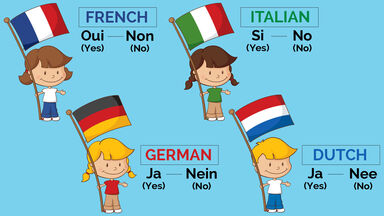
Yacht Is Also Mentioned In
- swim platform
- gentlemans-cruiser
- centreboard
Find Similar Words
Find similar words to yacht using the buttons below.
Words Starting With
Words ending with, unscrambles, words starting with y and ending with t, word length, words near yacht in the dictionary.
- Yablo's paradox
- Yablochkov candle

- How to , INFLATABLE BOATS AND RIBS , MOTOR BOATS , News , SAILBOATS
Yacht : modern meaning of the term and types of boats
- Luca D'Ambrosio
- February 25, 2023
The etymology of the term yacht comes from the Dutch word ‘jacht’, which was used in the past to define the fast sailing vessels used to hunt down pirates along the coasts of northern Europe.
Today, the term ‘yacht’ is used to describe all recreational vessels, whether sailing or motor-powered, with at least one cabin that allows the crew to sleep on board.
There is no established definition for the length of this family of boats, but common usage tends to define a yacht as a vessel longer than 33 feet, or about 10 meters.
As mentioned above, a yacht may be equipped with sailing, motor or mixed propulsion. It can have more than one hull, and if it exceeds 25 meters it also deserves the definition of superyacht . When a yacht is over 50 meters it is called a megayacht and, more and more frequently, when it exceeds 100 meters it becomes a gigayacht.
A yacht normally flies a flag that corresponds to the country where the vessel is registered, not least because, if it does not, it may be captured and taken to the nearest port for ‘flag survey’. As far as international maritime law is concerned, the yacht is considered in all respects to be the territory of the country of the flag it flies, to whose sovereignty the crew is subject.
A yacht flying the flag of a country, unless there is well-founded suspicion of illegal activity, can only be stopped for inspection by the military vessels of that country. When a yacht enters the territorial waters of a country other than that of its flag, it is obliged to fly a courtesy flag.
This is tantamount to a declaration of submission to the navigational laws of the country in which it is sailing.
Sailing and motor-powered yachts
The first major distinction is between sailing yachts and motoryachts. The current worldwide spread of these two families has shifted decisively towards motor yachts, which make up about 75% of the total sailing fleet.
Progress and design have produced many different categories of motor yachts, so let’s discover them together.
Motoryachts
Seen from the stern, a flybridge yacht is often equipped with a “beach club”, a platform that facilitates access to the sea and on which water toys are placed or simply used for diving. A staircase, or even two symmetrical staircases, leads from this platform to the main deck. Sometimes there is a “garage” between these two staircases to house the engine room, a tender and other on-board equipment.
The main deck is characterized by the presence of a helm station, inside of which a large open-space salon houses settees and a galley. The helm station often leads below deck, also known as the lower deck, where the sleeping quarters, or cabins, are normally located.

The foredeck often has a large sundeck bordered by a “bowplate” for hauling anchor. The bow is often “fenced in” by the handrails, which are vital grips for safety at sea.
Let’s get to why a yacht is called a flybridge. The flybridge is an upper deck, open 360 degrees and often covered by a hard-top, a roof usually made of fibreglass. The flybridge usually has an additional helm station to steer from a more panoramic position. An additional galley is often located on the flybridge, as well as additional lounge seating and sun decks.
Open Yachts
An open yacht has no flybridge and its main deck is commonly all open. The helm station can frequently be sheltered by a T-Top. Below deck, depending on the length of the yacht, there are living spaces for the crew which may include dinette, cabins and facilities. Open yachts can be walk-around, i.e. with the possibility for passengers of walking freely around the perimeter of the boat, or they can have an enclosed bow and thus have a raised deck.

A coupe yacht is a yacht without a flybridge, characterized by a sporty design, with the main deck open aft. Very often it has a sunroof and is always equipped with side-decks connecting the stern to the bow. It is a vessel that, depending on its size, is suitable for medium to long-distance cruising.

This is an important type of yacht, which has its origins on the American East Coast where it was used to catch lobsters. It has a romantic, sometimes vintage aesthetic, and is endowed with sinuous lines that, for some, are evocative of the 1950s. Very suitable for cruising and conviviality, thanks also to a large sofa in the cockpit, the lobster is an iconic boat that offers plenty of comfort and space below deck for at least one cabin and one head.

The trawler is essentially a yacht for owners who want to spend a lot of time on board. This is why interior volumes are maximized and the upper deck is always present. Also part of the trawler family are the famous Menorcan boats, inspired by the llaüts of the Menorca island..
Increasingly popular among motor yachts, too, is the multihull, due to its inherent features of stability and capacity. In most cases it is a catamaran designed for long stays at sea.
Sailing yacht
Sailing yachts are vessels where propulsion should mainly rely on the power transmitted by the wind. In the past, sailing yacht engines were low-powered and mainly used for entering and leaving ports, but today, for obvious reasons of practicality and ease of use, they have enough power to make the sailing yacht cruise at a speed at least equal to its theoretical hull speed. This means that sailing yachts can be used efficiently even in the total absence of wind.
A sailing yacht can be rigged in many different ways, these being the most common in modern times:
Sloop : this is the most common rigging on modern boats, characterized by the presence of a single mast with a mainsail and a jib or genoa. Sloop rigging has become popular over the years because it is the easiest to handle with a small crew and also offers the best ease of use/sailing performance ratio.
Cutter : Widely used for long distance sailing, it is characterized by the presence of a mainsail and two jibs rigged on a single mast. Normally the two jibs are a genoa and foresail that are used individually, depending on the weather conditions.
Ketch : this is the most commonly used rig on two-masted sailing yachts, with a mainmast, rigged with a mainsail and genoa, and a mizzenmast, forward of the rudder shaft, rigged with a single mainsail. The splitting of the sails makes this type of yacht suitable for sailing in bad weather.
Yawl : exactly the same as a ketch but with the mizzen mast located aft of the rudder shaft.
Sailing yachts can be monohulls or multihulls, i.e. catamarans or trimarans, but in all cases they can be divided into these categories:

Easy to handle and with plenty of space above and below deck, this type of yacht is normally characterized by an unbalanced length/width ratio favouring the latter, a small sail area and more powerful than average engines.
The interiors are fully equipped and sophisticated, with each cabin often having its own en-suite head.
The deck plan and sailing equipment are simplified, often electrified and minimal.
Cruiser-Racer

This yacht, while still featuring a luxurious and complete interior, also has all the equipment needed for sail fine-tuning and a generous sail area.
This is a category where special attention is paid to both the overall weight of the boat and the hull shape.
The hull lines are in fact designed to enhance performance and, inevitably, this results in a slightly smaller interior than that of pure cruising yachts of the same length.
Racer-Cruiser

The owner who buys this type of yacht has already competed in club competitions and now wants to engage in higher level racing. The hulls are light and can sometimes be made of carbon, and all the sail adjustments are fine-tuned to achieve maximum performance.
The deck plan is definitely designed for crewed racing and the sail area/displacement ratio is unbalanced in favour of the former, making this yacht more difficult to handle with a smaller crew but, conversely, capable of performance similar to a pure racing yacht.
A pure racing yacht is a sailing yacht built exclusively for racing. Free from any commercial constraints, it is built according to the type of race to be competed in and, above all, the rating to be obtained. The interiors of this boat are minimal. This yacht is capable of planing and sailing upwind at very low wind angles, but is almost never used for recreational purposes.

Leave a Reply Cancel reply
Your email address will not be published. Required fields are marked *
Save my name, email, and website in this browser for the next time I comment.
Language switcher
Browse categories.

You might be interested in

JEANNEAU YACHTS 65, 50 miles in absolute comfort

Navetta 53, the latest addition to the Absolute family, exceeds comfort standards

ICE62, the evolution of the Targa is even more dynamic and sporty
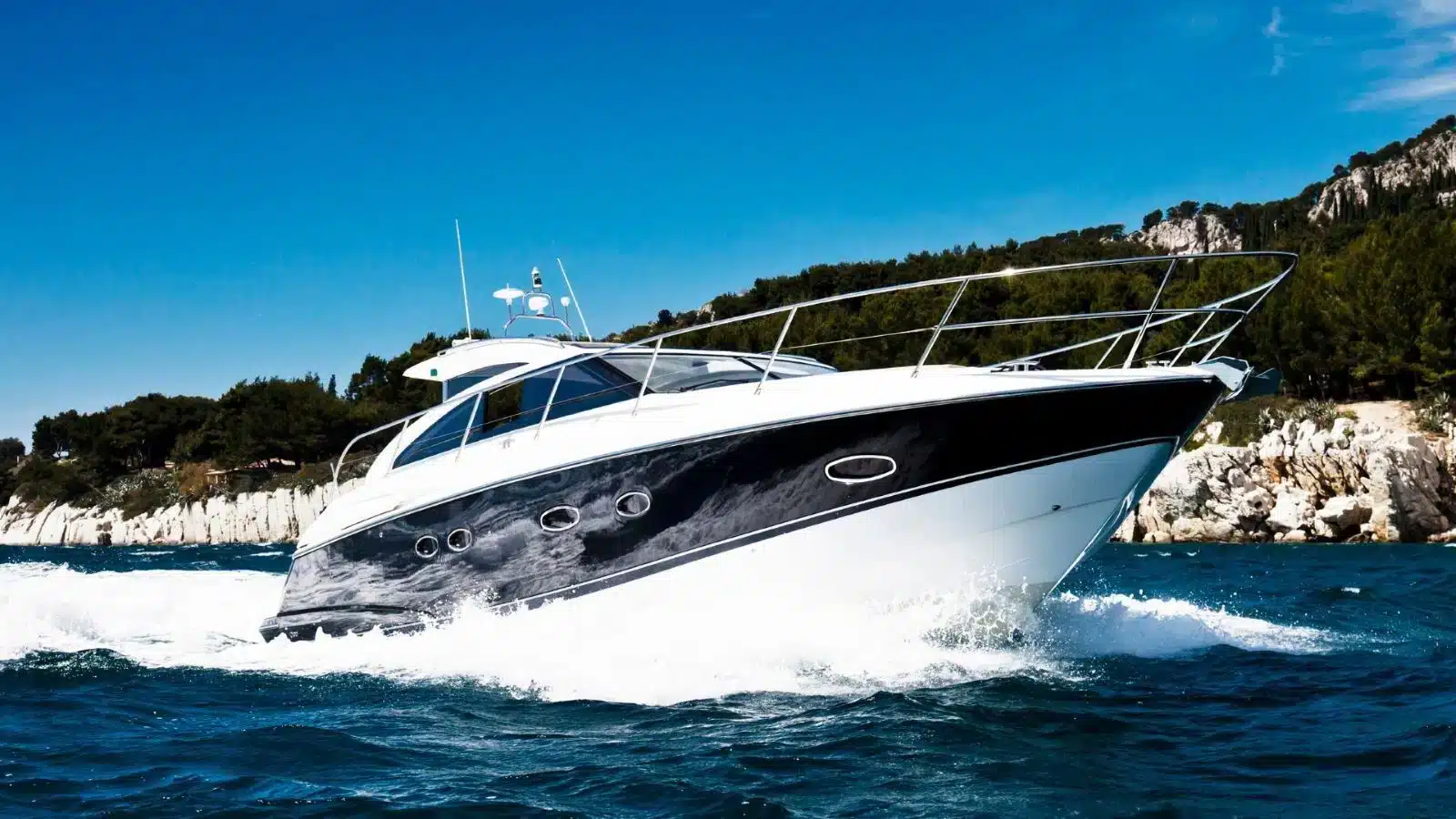
Antifouling for boats: everything you need to know

© 2021 – THE INTERNATIONAL YACHTING MEDIA Designed by BLive Communication
ABOUT YACHTINGNEWS.COM
Yachting News is an interactive multimedia magazine dedicated to the world of boating.
The International Yachting Media is the worlds most widely read boating magazines network. Whit its portal It broadcast its original contents in five languages and in more than 200 countries developing 950,000 views a week. Our web portals are the main source of information for yacht and boat owners, the place where they can find anything about their boating passion.
THEINTERNATIONALYACHTINGMEDIA.COM | SUPERYACHTS.NEWS | YACHT DIGEST
VIRTUAL BOAT SHOW | TUTTTOBARCHE | TOUSLESBATEAUX | TODOSLOSBARCOS
BOATING NEWS FREE APP

To provide the best experiences, we and our partners use technologies like cookies to store and/or access device information. Consenting to these technologies will allow us and our partners to process personal data such as browsing behavior or unique IDs on this site and show (non-) personalized ads. Not consenting or withdrawing consent, may adversely affect certain features and functions.
Click below to consent to the above or make granular choices. Your choices will be applied to this site only. You can change your settings at any time, including withdrawing your consent, by using the toggles on the Cookie Policy, or by clicking on the manage consent button at the bottom of the screen.
Subscribe For Latest Updates
Sign up to receive the best of Yachting News, sea trials, boat review and world premieres .
The only ADVERTISING FREE newsletter
Navigating the Spelling of Yacht: A Smooth Sailing Guide

The word "yacht" often raises eyebrows when it comes to spelling. This term, synonymous with luxury and leisure on the water, has a spelling that doesn't quite align with its pronunciation, leading many to second-guess themselves. In this article, we'll set sail through the correct spelling of "yacht," providing you with tips and examples to ensure that your writing journey is as smooth as a serene sea.
Understanding Yacht
A yacht is a type of boat or ship that is often used for pleasure, racing, or cruising. Originating from the Dutch word "jacht," which means "hunt," it was originally used to describe light, fast sailing vessels used to chase pirates. The transformation from "jacht" to "yacht" in English is where the spelling complexity lies.
The Spelling Challenge
The main challenge with "yacht" is its unorthodox spelling compared to its pronunciation. The 'ch' is silent, and there's no hint of the 't' in how it's spoken, which can lead to misspellings like "yatch," "yaght," or "yaht."
Tips for Spelling Yacht
- Remember the Dutch origin: The 'cht' is a common Dutch spelling.
- Silent 'ch': The 'ch' in yacht is not pronounced.
- End with 't': Despite not being pronounced, it's always there.
Try for free
Plan, write and optimize SEO content
Sign up today for a free trial, and you'll have access to 5000 words and 300 bonus credits—completely free.

Examples in Context
Using "yacht" in sentences can help reinforce its correct spelling:
- They spent the weekend sailing on a luxury yacht.
- His dream was to circumnavigate the globe in a yacht.
Spelling Yacht Correctly
To ensure you always spell "yacht" correctly, consider these strategies:
- Link to Its Origin : Remembering its Dutch origin can help with the 'cht.'
- Visual Association : Associate the word with an image of a yacht, reinforcing the spelling.
- Create a Mnemonic : Think of "You Always Can Have Tea" (Y-A-C-H-T).
Summary and Key Insights
Remember, spelling "yacht" correctly is all about understanding its origin and unique spelling pattern. It's a word that might not follow the usual rules, but with a bit of practice, it becomes easy to handle.
Frequently Asked Questions
What is a common mistake when spelling "yacht".
A common mistake is spelling it as "yatch," reversing the 'a' and the 't.'
Can "yacht" refer to any boat?
No, a yacht specifically refers to a medium to large-sized boat used for leisure, racing, or cruising.
How can I easily remember the spelling of "yacht"?
Remember the silent 'ch' and the Dutch origin. A mnemonic like "You Always Can Have Tea" can also be helpful.
Why does "yacht" have a silent 'ch'?
The silent 'ch' in "yacht" comes from its Dutch origin, where such spellings are more common.
Is "yacht" spelled differently in other languages?
Yes, the spelling of "yacht" can vary in languages other than English, often aligning more closely with its pronunciation.
Mastering the spelling of "yacht" is like learning to navigate the high seas – it might seem daunting at first, but with the right knowledge and practice, it becomes second nature. Whether you're writing about maritime adventures or luxury travel, getting the spelling right is crucial. And for all your writing needs, from crafting engaging travel blogs to professional content, our expert content writing agency at Strategically is here to help, offering SEO content, unlimited revisions, and more to ensure your writing is as impressive as a sleek yacht gliding over the waves.

How to change collection URL in Shopify

Rebecca Hey
24 June 2024

How to Create a Sub-Collection in Shopify
21 June 2024

How to Create and Manage Manual Collections in Shopify
20 June 2024

What is the ROI of Shopify SEO?
19 June 2024

How to Remove Featured Collections on Shopify

Step-by-Step Guide: How to Disable Auto Collection on Shopify
18 June 2024
- Nautical Sayings: Exploring the Fascinating World of Maritime Language
Ahoy there, fellow adventurers of the sea! Whether you're an experienced sailor or just someone fascinated by the world of nautical adventures, you've probably come across some intriguing and often perplexing maritime sayings. In this comprehensive article, we'll dive deep into the ocean of nautical sayings, yacht word origins, boating sayings, and the rich tapestry of nautical slang that has shaped the language of the high seas.
Setting Sail with Nautical Sayings
Ahoy, matey.
Our journey begins with the iconic greeting, "Ahoy, matey!" This classic nautical saying has been immortalized in countless pirate tales and seafaring adventures. But have you ever wondered about its origins and the fascinating history behind it?
The phrase "Ahoy, matey!" finds its roots in the 17th century when pirates and sailors needed a catchy and distinctive way to greet each other on the high seas. We'll explore how this phrase became a symbol of maritime camaraderie and adventure.
Charting the Course of Nautical Language
Before we delve into specific nautical sayings, let's navigate through the history of maritime language. The sea has always been a source of inspiration for unique expressions, and understanding the evolution of this language is key to appreciating its richness.
Maritime language is a dynamic blend of influences from various cultures, including English, Dutch, and even French. We'll journey through time to uncover how these linguistic influences shaped the nautical lexicon we know today.
Knots and Nautical Expressions
The maritime world is a treasure trove of fascinating expressions related to knots and ropes. From "tying the knot" to "left in the lurch," we'll unravel the meanings behind these captivating sayings.
Let's explore more nautical phrases related to knots, rigging, and seamanship. Each saying carries a unique history, often reflecting the practical challenges and traditions of sailors.
The Call of the Sea
Beyond greetings and practical expressions, sailors had a language of their own to communicate effectively on the vast expanse of the ocean. We'll delve into the lesser-known but equally intriguing nautical phrases that were used for signaling, navigation, and coordination.
Discovering Yacht Word Origins
The yacht: a luxurious icon .
Yachts epitomize elegance and luxury on the water. But have you ever wondered where the term "yacht" itself comes from? Let's set sail on a journey through time to explore its origins.
The word "yacht" has a fascinating history that dates back to the early days of sailing. We'll trace its evolution from humble beginnings to the opulent vessels we associate with yachts today.
Yacht or Jacht: A Linguistic Odyssey
Did you know that "yacht" is closely related to the Dutch word "jacht"? We'll uncover the linguistic connection between these two words and how it has influenced modern yacht culture.
The Dutch influence on yacht design and terminology is profound. We'll delve into how Dutch shipbuilders and explorers played a pivotal role in shaping the yacht industry.
The Golden Age of Yachting
Yachting isn't just about boats; it's a cultural phenomenon with a rich history. During the 19th century, the "Golden Age of Yachting" saw a surge in yacht building and racing. We'll explore this period and its impact on yacht word origins.
Sailing Through Boating Sayings
Smooth sailing ahead.
When it comes to boating, the saying "smooth sailing" is music to a captain's ears. Join us as we explore the origin of this optimistic phrase and how it reflects the sailors' eternal quest for favorable winds.
"Smooth sailing" isn't just a saying; it embodies the aspirations and experiences of mariners throughout history. We'll recount stories of legendary voyages and the calm seas that inspired this expression.
Weathering the Storm
Boating isn't always smooth sailing. Sometimes, sailors must "weather the storm." We'll examine the origin of this phrase and its enduring relevance to the maritime world.
Navigating storms at sea has always been a formidable challenge. We'll share tales of courage and resilience that shed light on the origins of this powerful metaphor.
Deciphering Nautical Slang
Aye, aye, captain .
Nautical slang is a language all its own, and "aye, aye, captain" is one of its most recognizable phrases. But what does it really mean, and why is it used so frequently on ships?
Read our top notch articles on topics such as sailing, sailing tips and destinations in our Magazine .
Check out our latest sailing content:
Fishing and sailing: where to sail for the best catches, skippered boats: how to pack for a yachting holiday, boat rental with skipper: everyone can go to sea, skippered boats: myths about sailing, sail from lefkada for 14 days. where to, what not to miss when visiting lefkada, skippered boats: step-by-step boat rental, where and why to sail from lefkas marina, don’t panic: handling maritime emergencies, skippered boats: how to choose a boat, the best sailing routes from biograd na moru, yachting away from ourselves: a voyage to inner peace, sail to the 7 most beautiful sights in greece, skippered boats: how to put together a crew, skippered boats: the most popular yachting destinations, what skipper's licence do i need, skippered boats: what you can experience when yachting, from lefkada or corfu to paxos and antipaxos, discover the paradise of paxos and antipaxoss, skippered boats: typical day on board, skippered boats: what it actually looks like on a boat, discover corfu: sailing adventure in the ionian, sextant and navigation: survival without gps, 5 best sailing routes in the bahamas, skippered boats: how much does a boat holiday cost, yachting guide to the bahamas, the ultimate yacht cleaning kit, introduction to chartering with a skipper, traditional sailor tattoos: meaning of the swallow, the most popular catamarans of 2023.
Swabbing the Deck: Nautical Work Lingo
"Swabbing the deck" might sound like a chore, but it's also a nautical saying with a rich history. We'll uncover its origins and its role in the daily life of sailors.
Navigating Ship Sayings
Shipshape and bristol fashion .
When something is "shipshape and Bristol fashion," it's in excellent condition. Discover the intriguing story behind this phrase, which hails from the bustling port city of Bristol.
Between the Devil and the Deep Blue Sea
Sometimes, sailors find themselves "between the devil and the deep blue sea." Explore the origins of this saying and the predicaments it describes.
Exploring Boat Phrases
In the same boat .
We often say we're "in the same boat" when facing a common challenge. But where does this saying come from, and why do we use it to express solidarity?
Casting Adrift: Origins of "Adrift"
Being "adrift" can have a figurative meaning beyond just being at sea. Discover the roots of this saying and how it found its way into everyday language.
Unraveling Nautical Expressions
By and large: a nautical measurement .
The phrase "by and large" has nautical origins tied to sail trimming. Join us as we explore the history of this saying and its transition to everyday language.
Three Sheets to the Wind: A Nautical Reference to Intoxication
Have you ever heard someone described as being "three sheets to the wind"? Learn about the nautical basis of this humorous expression.
Boating Phrases and Sailor Jargon
"know the ropes": mastering the art of sailing.
To "know the ropes" means to be skilled and knowledgeable. We'll sail through the history of this saying and its significance for sailors.
"The Whole Nine Yards": Nautical or Not?
Is "the whole nine yards" a nautical phrase? We'll unravel this linguistic mystery and see if it has nautical origins or not.
Sailing Expressions and Seafaring Terms
"batten down the hatches": preparing for a storm.
When sailors "batten down the hatches," they're preparing for a storm. Discover the practical origins of this vital nautical saying.
"Between the Devil and the Deep Blue Sea": A Nautical Dilemma
We revisit the phrase "between the devil and the deep blue sea" to explore its deeper connotations in the context of seafaring.
Nautical Words and Phrases: A Sailor's Lexicon
Nautical sayings: the ultimate lexicon .
Summarizing our exploration, we'll compile a comprehensive list of some of the most intriguing nautical words and phrases that have left their mark on the English language.
As we sail back to the shore of this captivating journey through nautical sayings and maritime language, it's clear that the sea has not only inspired adventurers but also enriched our vocabulary with colorful expressions. From "ahoy, matey" to "the whole nine yards," each saying carries a piece of nautical history that continues to resonate with us today.
So what are you waiting for? Take a look at our range of charter boats and head to some of our favourite sailing destinations.
I am ready to help you with booking a boat for your dream vacation. Contact me.

Denisa Nguyenová
Definition of 'yacht'

yacht in British English
Yacht in american english, examples of 'yacht' in a sentence yacht, trends of yacht.
View usage for: All Years Last 10 years Last 50 years Last 100 years Last 300 years
Browse alphabetically yacht
- Yablonovy Mountains
- Yablonovyy Range
- yacht chair
- yacht charter
- All ENGLISH words that begin with 'Y'
Related terms of yacht
- motor yacht
- royal yacht
- View more related words
Wordle Helper

Scrabble Tools
Quick word challenge
Quiz Review
Score: 0 / 5

Advertisement
Trump Will Get the Last Word in the Debate, While Biden Picks His Podium
A coin flip won by President Biden gave him the option of picking which podium he will use or choosing the order of closing statements.
- Share full article

By Neil Vigdor
- June 20, 2024
Former President Donald J. Trump will get the final word in CNN’s presidential debate next week, after losing a coin toss to President Biden’s campaign.
The coin flip gave Mr. Biden the option between picking which podium he wants or deciding the order of closing statements. Mr. Biden opted for the podium: he will appear on the right side of viewers’ screens.
In their two debates during the 2020 election, Mr. Biden appeared in the same position — to the left of Mr. Trump, and on viewers’ right.
Mr. Biden’s campaign did not immediately provide a comment about why he wanted to choose podium placement over speaking order, or why he prefers that placement.
During two vice-presidential debates in 2008 and 2012, Mr. Biden was in the opposite position, on the left side of viewers’ screens, and to the right of Sarah Palin , then Alaska’s Republican governor, and Paul Ryan , who later became House speaker.
Mr. Biden and Mr. Trump will be standing for the entire 90-minute debate, which will be begin at 9 p.m. Eastern time and will include two commercial breaks. The network’s rules bar them from interacting with campaign staff during those breaks.
Their microphones will only be turned on when it is their turn to speak, a condition that was sought by Mr. Biden’s team.
In their first debate in 2020, Mr. Biden uttered one of the more memorable lines after Mr. Trump repeatedly interrupted him. “Will you shut up, man?” he said.
There will be no in-person audience for next week’s debate, something Mr. Biden’s campaign had sought from the outset . As of Thursday, CNN confirmed that Mr. Biden and Mr. Trump would meet one-on-one, with Robert F. Kennedy Jr., the independent candidate, failing to meet the requirements for participation.
Reid J. Epstein contributed reporting.
Neil Vigdor covers politics for The Times, focusing on voting rights issues and election disinformation. More about Neil Vigdor
Our Coverage of the 2024 Election
Presidential Race: News and Analysis
The June 27 debate between President Biden and Donald Trump will be the earliest one in American history. Any potential missteps could shape the race for weeks or months .
A Democratic-leaning group announced the beginning of a seven-figure campaign to focus voter attention on the importance of the Supreme Court in the presidential election, with a heavy emphasis on the high court’s role in issues like abortion, gun safety and voting rights.
Two years after the Supreme Court overturned Roe v. Wade, unleashing a cascade of state-level abortion bans and prompting angry political backlash, Democrats are marking the anniversary by highlighting the role Trump played .
Biden’s Brain Trust: The president has a diverse group of advisers, but few have the influence of three men in his inner circle during his final campaign.
‘Apprentice in Wonderland’: The new book by the entertainment journalist Ramin Setoodeh, who spoke with Trump in 2021, depicts the former president as wounded, forgetful and hung up on Hollywood .
Misleading Videos: A flurry of recent clips, many of them edited or lacking context , laid bare a major challenge for Biden as he battles doubts about his age.
Watch CBS News
How did Juneteenth get its name? Here's the story behind the holiday's title
By Emily Mae Czachor
June 19, 2024 / 7:00 AM EDT / CBS News
June 19 marks the third consecutive year of Juneteenth as a federally recognized United States holiday. Also known as Freedom Day , Emancipation Day or America's second Independence Day, Juneteenth commemorates the end of slavery in the U.S. after the Civil War.
Many Americans have celebrated it annually for more than a century, even though the holiday was not officially added to the national calendar until 2021. As the Black Lives Matter movement gained renewed power across the country and abroad the previous year with the police killings of Black Americans like George Floyd and Breonna Taylor , public calls grew louder for the federal government to acknowledge emancipation as the critical turning point it was in U.S. history. Advocates sought, again, for leaders to codify the Juneteenth holiday into law, decades after communities began to push for broader recognition of Juneteenth as an emblem of unity, power and resilience in the wake of the police beating of Rodney King in 1991.
Federal recognition came in 2021. A bill to solidify Juneteenth National Independence Day as a legal public holiday passed almost unanimously through both chambers of Congress before being signed by President Biden on June 18. At a White House ceremony held for the occasion, Mr. Biden said: "All Americans can feel the power of this day, and learn from our history." It was the first time a national holiday was established in the U.S. since Martin Luther King Jr. Day was set to honor the late civil rights leader's birthday in 1983.
Juneteenth became a legal federal holiday in the U.S. on the eve of its earliest nationwide observance on June 19, 2021. It is observed and celebrated each year on that same date.
The origins of Juneteenth
The name, Juneteenth, is a portmanteau, combining June and nineteenth. Its origins date back to June 19, 1865 , when the last group of people enslaved in the southern U.S. were informed of their freedom under the Emancipation Proclamation. President Abraham Lincoln had signed the Emancipation Proclamation more than two years earlier, on Jan. 1, 1863, declaring that everyone held as a slave was, and would continue to be, free.
The proclamation took effect as the country neared its second year of the Civil War and technically applied to enslaved people in Confederate states. However, it could not actually be implemented in Confederate territory, and the war would not end in victory for the Union Army until much later, in the spring of 1865. In Texas, the westernmost state controlled by the Confederacy, news of freedom and the tenets of the Emancipation Proclamation arrived that summer. On June 19, thousands of Union soldiers reached Galveston Bay, along the northeastern coast of Texas in the Gulf of Mexico, and announced that all enslaved people in the state were freed by executive order.

At the time, more than 250,000 Black people were being held as slaves in Texas alone, according to the National Museum of African American History and Culture, which writes in a description of the holiday that the "historical legacy of Juneteenth shows the value of never giving up hope in uncertain times." Once the Emancipation Proclamation laid its roots in Texas, those freed from slavery declared the day of its arrival "Juneteenth" in homage to the date when it finally happened.
Although the Emancipation Proclamation set the stage, critically, for an end to slavery throughout the U.S., it was the 13th Amendment to the Constitution that actually did it. The amendment's passage through Congress and across Lincoln's desk began in January 1865. It was ratified in December of that year, abolishing slavery nationwide.
How to celebrate Juneteenth
Observing Juneteenth each year on June 19 does memorialize that specific day in Galveston in 1865, but it is also symbolic. Many regard the holiday as a joyful anniversary of independence and an opportunity to remember the country's foundation on centuries of slavery.
Historically, communities in different parts of the U.S. have celebrated Emancipation Day on different dates, a tradition that nodded to the fact that news of the Emancipation Proclamation reached people enslaved by the Confederacy at different times after the Civil War. In Florida, for example, advocates in 2021 pushed for the state to recognize and observe Emancipation Day on May 20, because that was the date in 1865 when news of Lincoln's executive decree reached enslaved people there. Washington, D.C., has in the past observed a city-wide Emancipation Day on April 16.
Juneteenth celebrations vary. Public festivities often include parades, parties, concerts, educational workshops and other cultural events centered on art and cuisine. For some, commemorating Juneteenth is mainly about tapping into the spirit of the holiday. Koritha Mitchell, an English professor at Ohio State University who celebrated Juneteenth growing up in a small town outside of Houston, told CBS News in 2021 that, for her, the day revolved around family and "creating community and connection."
Opal Lee, the retired teacher and counselor whose activism played a huge role in Juneteenth becoming a federally recognized holiday, recalled joyful memories of the annual celebrations in the Texas town where she lived as a child.
"When I was a little one and we lived in Marshall, Texas, we'd go to the fairground," she said in a CBS News interview in 2022. "There'd be games and food and food and food. I'm here to tell ya it was like Christmas!"
Lee, now 97, became known as the "Grandmother of Juneteenth" for her famous trek from Fort Worth, Texas, to Washington, D.C., to ultimately deliver 1.5 million signatures to Congress advocating for a law to make the date a federal holiday. She shared her thoughts on the essence of Juneteenth in that 2022 interview.
"People think it's a Black thing when it's not. It's not a Texas thing. It's not that," Lee said. "Juneteenth means freedom, and I mean for everybody!"
Emily Mae Czachor is a reporter and news editor at CBSNews.com. She covers breaking news, often focusing on crime and extreme weather. Emily Mae has previously written for outlets including the Los Angeles Times, BuzzFeed and Newsweek.
More from CBS News

DNC commits funding to target abortion restrictions in Republican states

U.S. woman killed by elephant in Zambia, the second this year

Heat wave sizzles parts of the country amid floods and other severe weather

COVID summer wave grows, with new variant LB.1 on the rise
Juneteenth: What to know about the historical celebration that's now a federal holiday
On june 19, 1865 slaves in galveston, texas were given the news that they were freed by president abraham lincoln. now, the day is a holiday that celebrates the "second independence day" in america..

Three years after it was made a federal holiday , Juneteenth 2024 marks a day of celebration as well as education.
The federal holiday known as “Second Independence Day,” marks the day the last African American slaves were notified that they had been freed from their masters, the National Museum of African American History and Culture said.
Dr. Tim Goler, a professor of urban affairs and sociology courses and director of research for the Center for African American Public Policy at Norfolk State University, told USA TODAY that Juneteenth or "Freedom Day" is a day that shows the "beauty of our culture" that everyone should participate in.
The origins of Juneteenth date back to June 19, 1865 – more than two years after President Abraham Lincoln signed the Emancipation Proclamation - when the Union Maj. Gen. Gordon Granger arrived in Galveston, Texas, and announced the end of the Civil War and the emancipation of enslaved African Americans, Goler said.
“This delay and the enforcement of the emancipation in Texas was due to a lack of enforcement until this general arrived," Goler said. "Then Juneteenth thus became this kind of powerful symbol of freedom and the long struggle for civil rights."
The Juneteenth National Independence Day A ct was passed by the U.S. House of Representatives and Senate in June 2021. The bill was signed by President Joe Biden on June 17, 2021, which officially made the day a federal holiday.
Here's what you need to know about Juneteenth.
An African American holiday: Predating Juneteenth was nearly lost to history. It's back.
Black History, Juneteenth becoming more cemented in fabric of US
Although Juneteenth is now becoming a part of the conversation regarding Black History, there was a time when Black History was not widely discussed within the educational system, especially for historians, said Dr. Alan Singer, a professor of teaching, learning and technology at Hofstra University who writes about the history of slavery and racism.
“I didn't learn it (until) I was an adult, really (in the) 1990s, when as a teacher, I started studying more, so I (could) incorporate it into my lessons,” he said. “I went to City College in the 1960s and they had first introduced a course called ‘American Negro History’ and that was the first time I had learned about any of these things. I took the course because I became a political activist while at City College and I needed to know more about the African American civil rights struggles.”
Singer also adds that he attended high school during the Civil Rights Movement and was never taught about Black History. To change that, he decided to educate himself more to properly teach his students.
“I just felt a heavy responsibility as a teacher to really present a much more accurate picture of the history of the United States,” he said.
Goler adds that Juneteenth has been recognized for years within the Black community and history. Now, the day has become more publicly known.
"In recent years, Juneteenth has gained a much wider recognition. It's only been since 2021 that it became that designated as a federal holiday," he said. "Many Black people and Black communities around the country have celebrated Juneteenth. It's just becoming much more wider and much more visible now."
Commercialization of Juneteenth
Since Juneteenth has been declared a federal holiday, many retailers have unveiled Juneteenth attire through clothing, footwear, hats and other merchandise.
"The question is, 'who benefits from the commercialization of Juneteenth?' I’d definitely like to see more African American (and) more Black businesses benefit," Goler said. "The trend of commercialization, we risk the overshadowing of the historical context, and the ongoing struggle for racial equality that Juneteenth represents."
Singer hopes that companies that are selling Juneteenth products are also advocating for more inclusivity.
“What I'm arguing is that what we need to do is to use a day like Juneteenth as a launching pad to build a more just society,” he said. “It should not just be about the past, it has to be about the future.”
Goler hopes that the holiday will bring everyone together but also educate them about this important day in Black History.
"I think as we observe Juneteenth, it's important to focus on the education, reflection, the community engagement aspect and really ensure that the day remains of a pungent reminder of our continued and enduring fight for freedom and justice," he said.
Ahjané Forbes is a reporter on the National Trending Team at USA TODAY. Ahjané covers breaking news, car recalls, crime, health, lottery and public policy stories. Email her at [email protected] . Follow her on Instagram , Threads and X (Twitter) .
Indonesian Muslim metal group braces for biggest stage yet
- Medium Text

Sign up here.
Reporting by Stanley Widianto and Ananda Teresia; Editing by William Mallard
Our Standards: The Thomson Reuters Trust Principles. New Tab , opens new tab

World Chevron

EU backs Russian frozen asset plan to aid Ukraine, sparks Hungarian anger
European Union governments agreed to use 1.4 billion euros ($1.50 billion) in profits from Russian frozen assets for arms and other aid to Ukraine, prompting Hungary to accuse fellow EU members of a "shameless" rule breach to bypass its objections.


IMAGES
COMMENTS
Old English huntian "chase game" (transitive and intransitive), perhaps developed from hunta "hunter," and related to hentan "to seize," from Proto-Germanic *huntojan (source also of Gothic hinþan "to seize, capture," Old High German hunda "booty"), which is of uncertain origin.. Not the usual Germanic word for this, which is represented by Dutch jagen, German jagen (see yacht (n.)).
I looked up the origin of the word yacht, and it said it is a mid 16th century, Early Modern Dutch word from 'jaght,' from 'jaghtschip' meaning "fast pirate ship," from 'jaght' which means "hunting" + 'schip' meaning "ship". I like the story of King Charles. It makes sense that that is why a yacht has the definite ...
yacht: [noun] any of various recreational watercraft: such as. a sailboat used for racing. a large usually motor-driven craft used for pleasure cruising.
Circa 1557; variant of yaught, earlier yeaghe (" light, fast-sailing ship "), from Dutch jacht (" yacht; hunt "), in older spelling jaght(e), short for jaghtschip (" light sailing vessel, fast pirate ship ", literally " pursuit ship "), compound of jacht and schip (" ship ").. In the 16th century the Dutch built light, fast ships to chase the ships of pirates and smugglers ...
The word "yacht" finds its origin in the Dutch word "jacht" or "jaght," meaning "hunt" or "chase." In the 17th century, these vessels were primarily used by the Dutch navy for pursuing pirates and engaging in coastal defense. Originally, a yacht was a fast and nimble sailing ship with a focus on performance rather than luxury.
A yacht (/ j ɒ t /) is a sailing ... the origin of the bridge. In the late 18th century, steam engines became more efficient, spars were removed and screw propellers became standard. Steam yachts evolved with the development of the steam engine. Ultimately, engines employed pistons driven by steam within cylinders, connected to a crank shaft ...
As for origin of the word 'yacht'? The Oxford Dictionary explains the origins of yacht as 'mid 16th cent.: from early modern Dutch jaghte, from jaghtschip 'fast pirate ship', from jag(h)t 'hunting' + schip 'ship''. The bitter end. The Bitt is a cleat or post on the deck of a ship, for fastening lines.
YACHT definition: 1. a boat with sails and sometimes an engine, used for either racing or travelling on for pleasure…. Learn more.
Definition of yacht noun in Oxford Advanced Learner's Dictionary. Meaning, pronunciation, picture, example sentences, grammar, usage notes, synonyms and more. ... Word Origin mid 16th cent.: from early modern Dutch jaghte, from jaghtschip 'fast pirate ship', from jag(h) ...
Word origin [1550-60; ‹ early D jaght, short for jaghtschip hunting ship, equiv. to D jacht hunt (deriv. of jagen to hunt) + schip ship] Word Frequency. yacht in British English (jɒt) noun. 1. ... A yacht is a large boat with sails or a motor, used for racing or for pleasure trips.
Yacht came to English from Dutch, and the Dutch pronounce the ch with a rasping sound from the back of the throat, a sound heard in German words like buch ("book") and Scots words like loch ("lake").. Linguists use the term velar fricative to describe this sound, with velar from the Latin word for "curtain" meaning the soft palate or the flap at the back of the roof of the mouth ...
YACHT meaning: 1. a boat with sails and sometimes an engine, used for either racing or travelling on for pleasure…. Learn more.
Where does the noun yacht come from? Earliest known use. late 1500s. is a borrowing from Dutch. Etymons: Dutch jaght (e. See etymology.
Definition of yacht noun in Oxford Advanced American Dictionary. Meaning, pronunciation, picture, example sentences, grammar, usage notes, synonyms and more.
Yacht definition: a vessel used for private cruising, racing, or other noncommercial purposes.. See examples of YACHT used in a sentence.
Yacht definition: Any of various relatively small, streamlined sailing or motor-driven vessels used for pleasure cruises or racing.
February 25, 2023. The etymology of the term yacht comes from the Dutch word 'jacht', which was used in the past to define the fast sailing vessels used to hunt down pirates along the coasts of northern Europe. Today, the term 'yacht' is used to describe all recreational vessels, whether sailing or motor-powered, with at least one cabin ...
Spelling Yacht Correctly. To ensure you always spell "yacht" correctly, consider these strategies: Link to Its Origin: Remembering its Dutch origin can help with the 'cht.'. Visual Association: Associate the word with an image of a yacht, reinforcing the spelling. Create a Mnemonic: Think of "You Always Can Have Tea" (Y-A-C-H-T).
From the definition of a yacht to the spelling of various sailing-related terms, this article sets out to demystify the language of the seas, offering insight into the origins and meanings of these captivating words. Decoding the yacht: Definition and origin. A yacht is more than a vessel; it's a symbol of luxury and sophistication.
yacht: 1 n an expensive vessel propelled by sail or power and used for cruising or racing Synonyms: racing yacht Type of: vessel , watercraft a craft designed for water transportation v travel in a yacht Type of: boat ride in a boat on water
yacht, a sail- or power-driven vessel, usually light and comparatively small, used for racing or for recreation. In recreation, the term applies to very large craft, originally powered by sail and later by steam or internal-combustion engines. It is in this sense that the generality of nonyachting (nonsailing) people usually think of the term ...
Explore the intriguing world of nautical sayings, unravel yacht word origins, and dive into maritime slang. Discover the rich history behind these maritime expressions. +49 211 54 69 22 23. FormResult. ... Join us as we explore the origin of this optimistic phrase and how it reflects the sailors' eternal quest for favorable winds.
Musician Travis Scott was arrested and booked into Miami-Dade County Jail early Thursday morning on charges of trespassing property after being given a warning and disorderly intoxication, county ...
On Thursday, everyone in the northern half of our planet will experience the summer solstice. It'll be the longest day of the year north of the Equator, and it is the scientific start of summer.
3 meanings: 1. a vessel propelled by sail or power, used esp for pleasure cruising, racing, etc 2. → short for sand yacht, ice.... Click for more definitions.
A coin flip won by President Biden gave him the option of picking which podium he will use or choosing the order of closing statements. By Neil Vigdor Former President Donald J. Trump will get the ...
Juneteenth became federally recognized in the U.S. in 2021, but the origins of the holiday and its name date back more than 150 years.
Black History, Juneteenth becoming more cemented in fabric of US. Although Juneteenth is now becoming a part of the conversation regarding Black History, there was a time when Black History was ...
A Greek prosecutor on Sunday charged 13 crew members of a yacht with arson after fireworks launched from the vessel allegedly sparked a forest fire on the island of Hydra, the semi-official Athens ...
The 2024 Tony Awards were held on Sunday night at the David H. Koch Theater at Lincoln Center for the Performing Arts in New York City. Oscar and Tony award winner Ariana DeBose returned to host ...